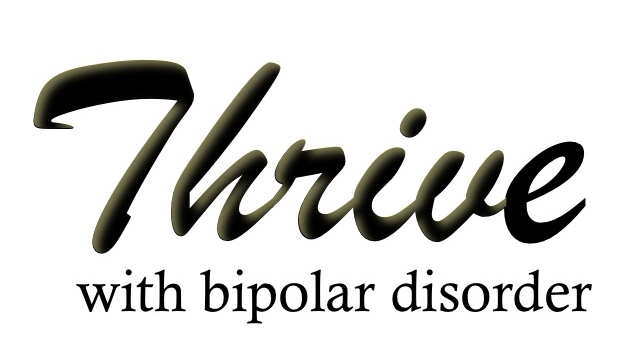 Bipolar disorder is a highly misused name whose sole purpose is to describe common and shared experiences and behaviors that occur in a significant percentage of the global population.
Bipolar disorder is a highly misused name whose sole purpose is to describe common and shared experiences and behaviors that occur in a significant percentage of the global population.
To appropriately receive this name (or as it is often called, “label”) one must have evidence of the presence of one single manic (severe) or hypomanic (less severe) episode.
how do you recognize mania?
-
a person must have a distinct period of at least 1 week in which they experience persistently elevated, expansive or irritable mood
-
at least 3 of the following symptoms
-
mood disturbance must be severe enough to cause impairment in ability to work, relationships, social activities
Mood
- elated mood – ecstatically happy with or without reason; bouncing off the walls with happiness.
- expansive mood – covering a wide area of mood; mood swings.
- irritable mood – angry; easily lashing out
Notice if mood is abnormally elated, expansive or irritable from how mood normally is. Mood may swing between the extremes of elated and irritable as well as other emotions. Mood may shift without any situational triggers or circumstances. Emotion may be expressed in an out of control way.
If a person exhibits these moods, it does not mean that a person should be diagnosed with bipolar disorder. However, it does mean that bipolar disorder could be a reasonable possibility.
Symptoms
During the period of mood distrurbance 3 or more of the following symptoms must be present to a significant degree
Inflated self-esteem or grandiosity
- perception of self is not in touch with reality
-
- exteme (significantly greater than normal) sense of self-importance and specialness
- arrogance
- It is common for people to believe that they are not from this planet or are chosen by God.
-
profound sense of spirituality, ability and purpose
-
- sense of invincibility, omnipotence, mastery and control
- incredibly heightened intellectual and overall brain activity due to changes in the brain during mania
- connection to the world around them; believing they can change the world by doing ________________.
- perception of having special powers, gifts and abilities
This (and the ability to persist towards goals) is often the reason why people do not want to take medication.
Not needing to sleep (or unable to sleep)
- significant decrease in need for sleep.
- Difficulty falling asleep and staying asleep.
If a person is having difficulty sleeping and/or does not have the need for sleep, this is an early warning sign of mania for a person living with bipolar disorder.
Medical problems must be ruled out when a person is experiencing sleep difficulties. This symptom alone cannot result in the diagnosis of mania. However, it is a very important symptom that must be monitored.
Can’t stop talking
- pressure to talk
- more talkative than usual
This is not about a person’s need to talk about themselves or be the center of attention. They are simply flooded with so many ideas that they can’t stop talking.
Obsessed with a goal (goal-directed activity)…unable to stop.
- unable to stop persisting on a goal (work, school, sexually)
- neglect things like eating, showering, sleeping, family, friends etc to work on a goal
This is not Type A personality. This behavior is significantly different from how a person normally behaves.
Excessive involvement in pleasurable activities (impulsivity)
- high potential for painful consequences
- often times impulsivity is expressed by spending lots of money frivolously (trinkets, clothes and unnecessary items) and goal oriented ways (investments, business, homes etc); however the investments are often not things that would be chosen by them normally.
- sexual impulsivity – it is very common for people experiencing mania to have an intense and often insatiable sex drive
There is a difference between impulsive personalities and mania. A person experiencing mania is acting impulsively in extreme ways that they would not normally behave otherwise.
Flight of ideas or racing thoughts
- these are thoughts that move so fast that they cannot be expressed or only make sense to you.
- it is often having multiple thoughts at once that get jumbled together
- these thoughts can be obsessive. You just can’t stop thinking them.
These racing thoughts often exist in people with bipolar disorder even when they are not experiencing mania. Mania exacerbates them.
Easily Distractable (particularly by ideas or tangents, this symptom is related to racing thoughts)
- attention is easily grabbed by unimportant and irrelevant external stimulus
Similar to ADHD, yet ADHD does not have the mood component and distractibility occurs during the manic episode unless it is also a diagnoses.
Psychosis
can occur during mania and depression
- delusions – refusal to accept that their perception and experience is not real to other people in spite of evidence that contradicts their perception and experience.
- hallucinations – having sensory experiences (seeing, hearing, feeling, tasting) things that is not real to other people and rejecting that possibility in spite of evidence that contradicts their sensory experience.
Psychosis that takes place within a manic episode is common for mania.
However, when psychosis occurs outside of a manic episode, the diagnoses is schizoaffective disorder.


